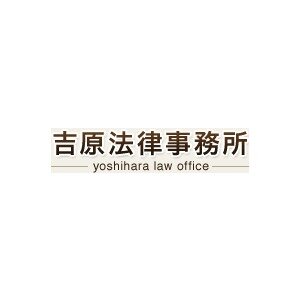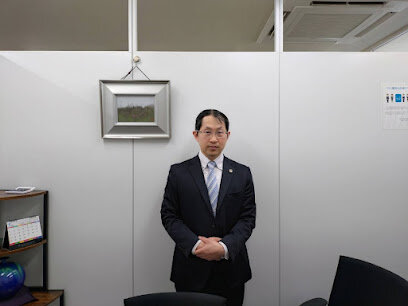Best Criminal Defense Lawyers in Japan
Share your needs with us, get contacted by law firms.
Free. Takes 2 min.
Or refine your search by selecting a city:
List of the best lawyers in Japan
About Criminal Defense Law in Japan
Criminal defense law in Japan involves representing individuals accused of committing crimes and ensuring their rights are protected throughout the legal process. Japan's legal system is primarily based on the civil law system and has unique characteristics. The role of defense attorneys is critical in navigating the intricacies of Japanese criminal law, where both minor infractions and serious criminal charges are addressed under strict procedural norms. They work to ensure the defendant receives a fair trial and can help in negotiating penalties, if necessary.
Why You May Need a Lawyer
There are several situations where you might require legal assistance in criminal defense in Japan. If you are accused of a crime, it's essential to secure legal representation as soon as possible to protect your rights. Even if you are just under investigation without formal charges, a lawyer can help navigate the situation. Legal assistance is crucial for understanding charges, preparing a defense, negotiating plea deals, and ensuring fair treatment in court and while in custody. Lawyers can also assist with the language barrier and cultural differences, providing an essential bridge to comprehending Japanese law fully.
Local Laws Overview
Japanese criminal law is codified in the Penal Code of Japan and encompasses a variety of offenses, including theft, assault, drug crimes, and white-collar crime, among others. Key aspects include a presumption of innocence until proven guilty and the requirement of due process. The Japanese legal system permits the use of confessions in trials, making early and effective legal support critical. The concentration of power in investigative authorities means suspects may face intensive questioning, emphasizing the need for legal guidance. Foreign nationals should be particularly aware of the specific regulations related to residency status and compliance.
Frequently Asked Questions
What should I do if I am arrested in Japan?
If arrested, you have the right to remain silent and request legal representation. It's crucial to exercise these rights and reach out to a lawyer as soon as possible.
Is there a bail system in Japan?
Yes, Japan has a bail system, but it is not as commonly granted as in some other countries. Conditions can be stringent, and it is advisable to have a lawyer navigate this process.
How long can the police detain a suspect without formal charges?
The police can detain a suspect for up to 23 days before formal charges must be filed. During this time, it’s important to have legal representation to protect your rights.
What are the roles of a defense attorney in Japan?
A defense attorney provides legal advice, representation in court, negotiates with prosecutors, and helps in gathering evidence and preparing your defense.
Can I choose my defense lawyer?
Yes, you can choose your lawyer, or one will be appointed if you can't afford one. However, having a lawyer with expertise in criminal defense and fluency in your language can be beneficial.
Are confessions admissible in Japanese courts?
Yes, confessions are admissible. However, there are strict guidelines on how these confessions are obtained to ensure they are voluntary and legally binding.
What is the role of prosecutors in the Japanese legal system?
Prosecutors in Japan have significant discretionary power and are responsible for determining whether to charge a suspect with a crime.
How can I appeal a conviction?
After a conviction, you have the right to appeal to a higher court, and it is advisable to have legal counsel to assess the merits of your appeal.
What happens during a criminal trial in Japan?
During a trial, evidence is presented, and witnesses can be called by both the defense and prosecution. Judges then deliberate on the information to reach a verdict.
Is there a jury system in Japan?
Japan employs a lay judge system for certain serious crimes, where professional judges are accompanied by citizen judges to deliberate on cases.
Additional Resources
For further information, consider consulting the Japan Federation of Bar Associations, local legal aid offices, or embassies for foreign nationals needing jurisdiction-specific advice. The Tokyo Public Law Office and Osaka Bar Association are also notable resources offering legal support and advice.
Next Steps
If you find yourself in need of legal assistance in a criminal matter in Japan, it’s crucial to act swiftly. Contact a qualified criminal defense lawyer who understands Japanese law and, if necessary, has fluency in your language. Compile all relevant information about the case and maintain open and honest communication with your lawyer. Explore utilizing resources and legal aid if financial constraints pose a challenge in securing private legal representation.
Lawzana helps you find the best lawyers and law firms in Japan through a curated and pre-screened list of qualified legal professionals. Our platform offers rankings and detailed profiles of attorneys and law firms, allowing you to compare based on practice areas, including Criminal Defense, experience, and client feedback.
Each profile includes a description of the firm's areas of practice, client reviews, team members and partners, year of establishment, spoken languages, office locations, contact information, social media presence, and any published articles or resources. Most firms on our platform speak English and are experienced in both local and international legal matters.
Get a quote from top-rated law firms in Japan — quickly, securely, and without unnecessary hassle.
Disclaimer:
The information provided on this page is for general informational purposes only and does not constitute legal advice. While we strive to ensure the accuracy and relevance of the content, legal information may change over time, and interpretations of the law can vary. You should always consult with a qualified legal professional for advice specific to your situation.
We disclaim all liability for actions taken or not taken based on the content of this page. If you believe any information is incorrect or outdated, please contact us, and we will review and update it where appropriate.
Browse criminal defense law firms by service in Japan
Japan Attorneys in related practice areas.
Browse criminal defense law firms by city in Japan
Refine your search by selecting a city.














